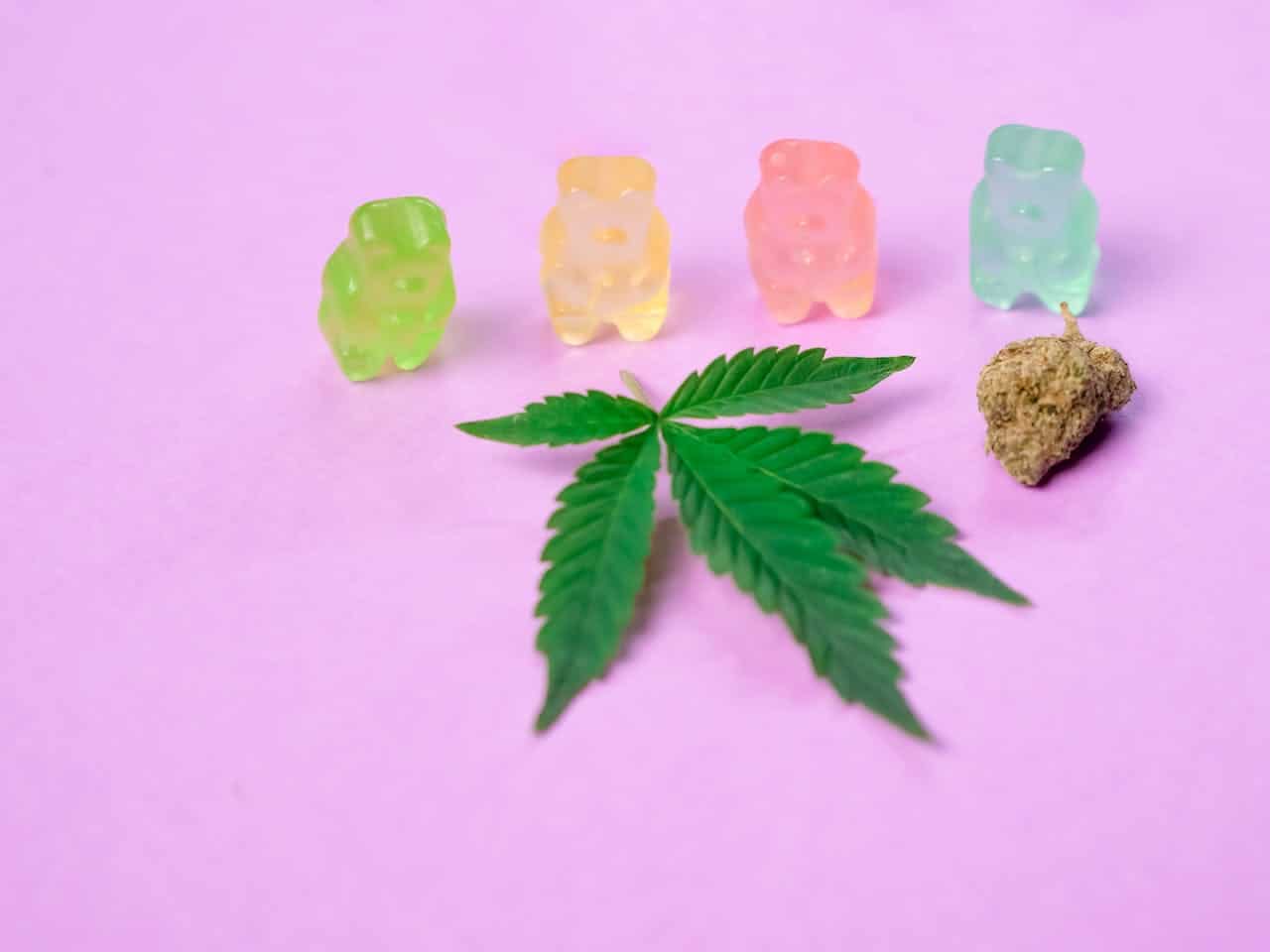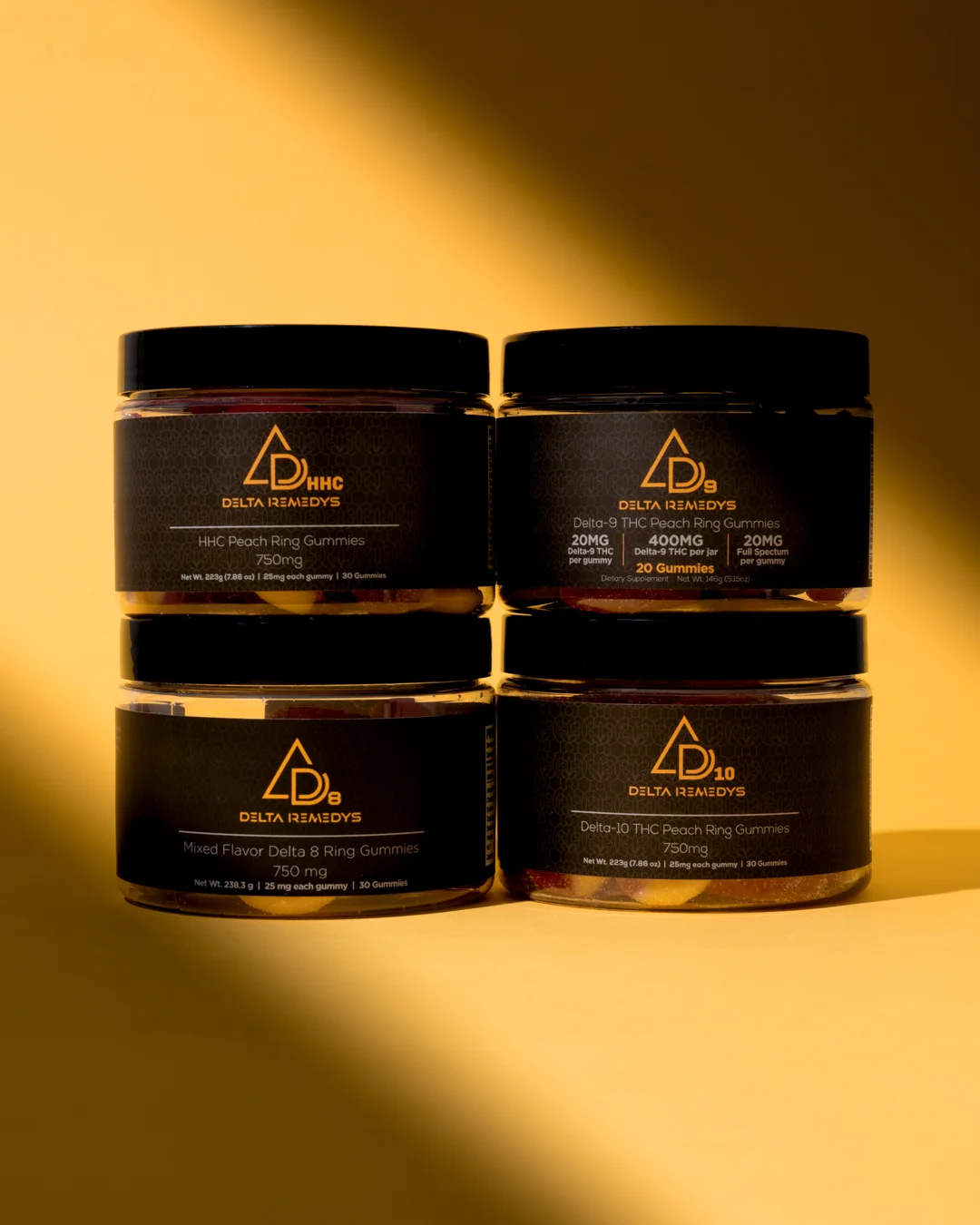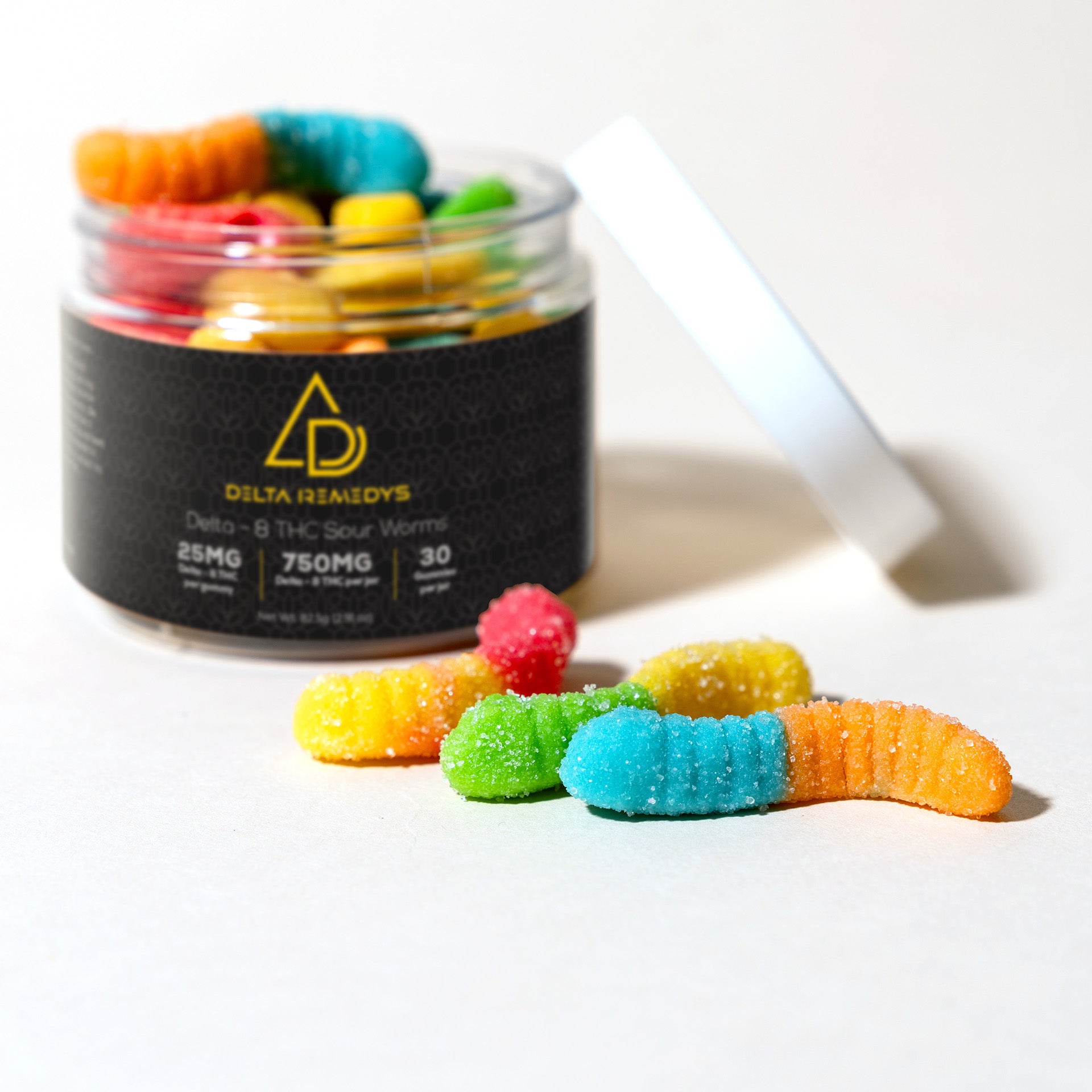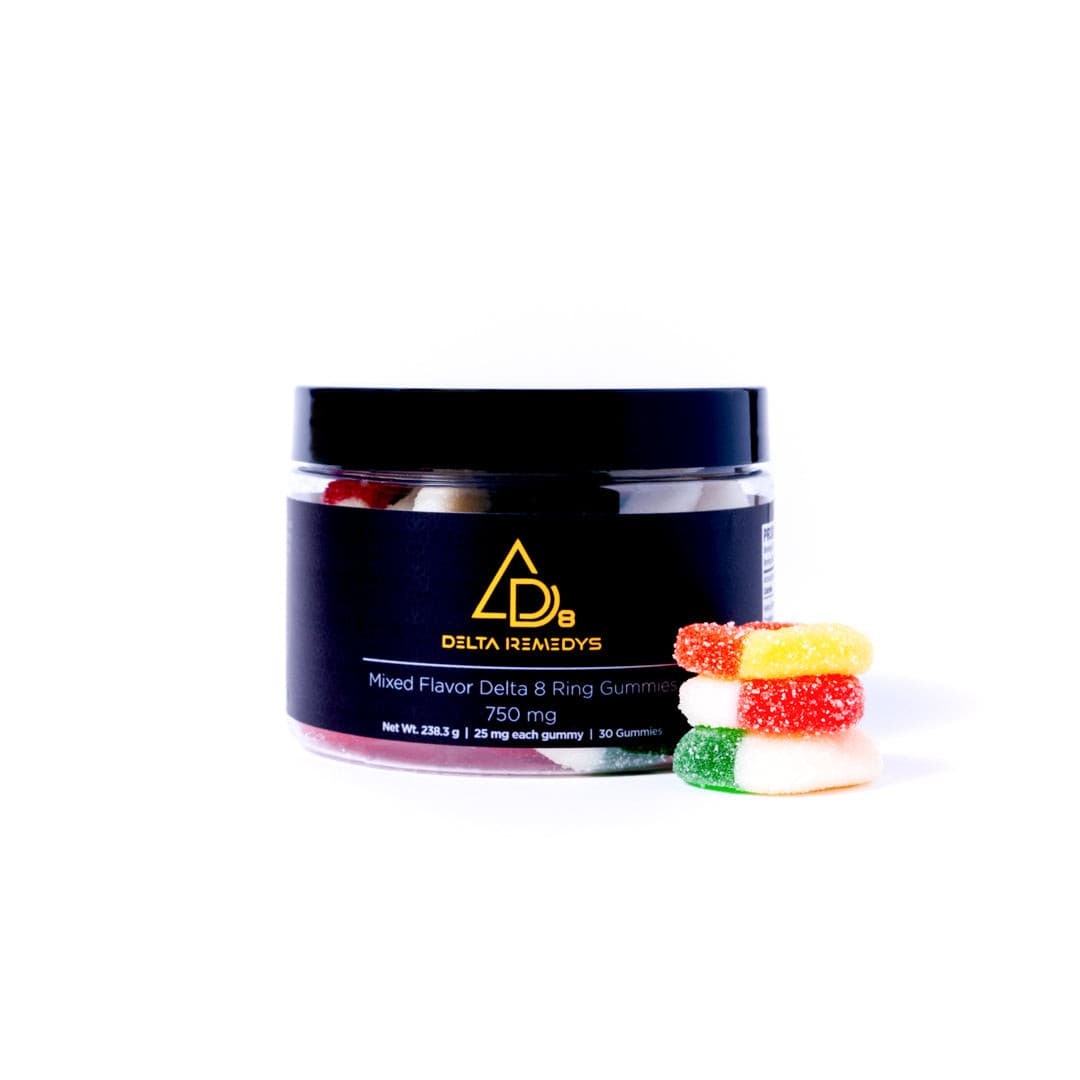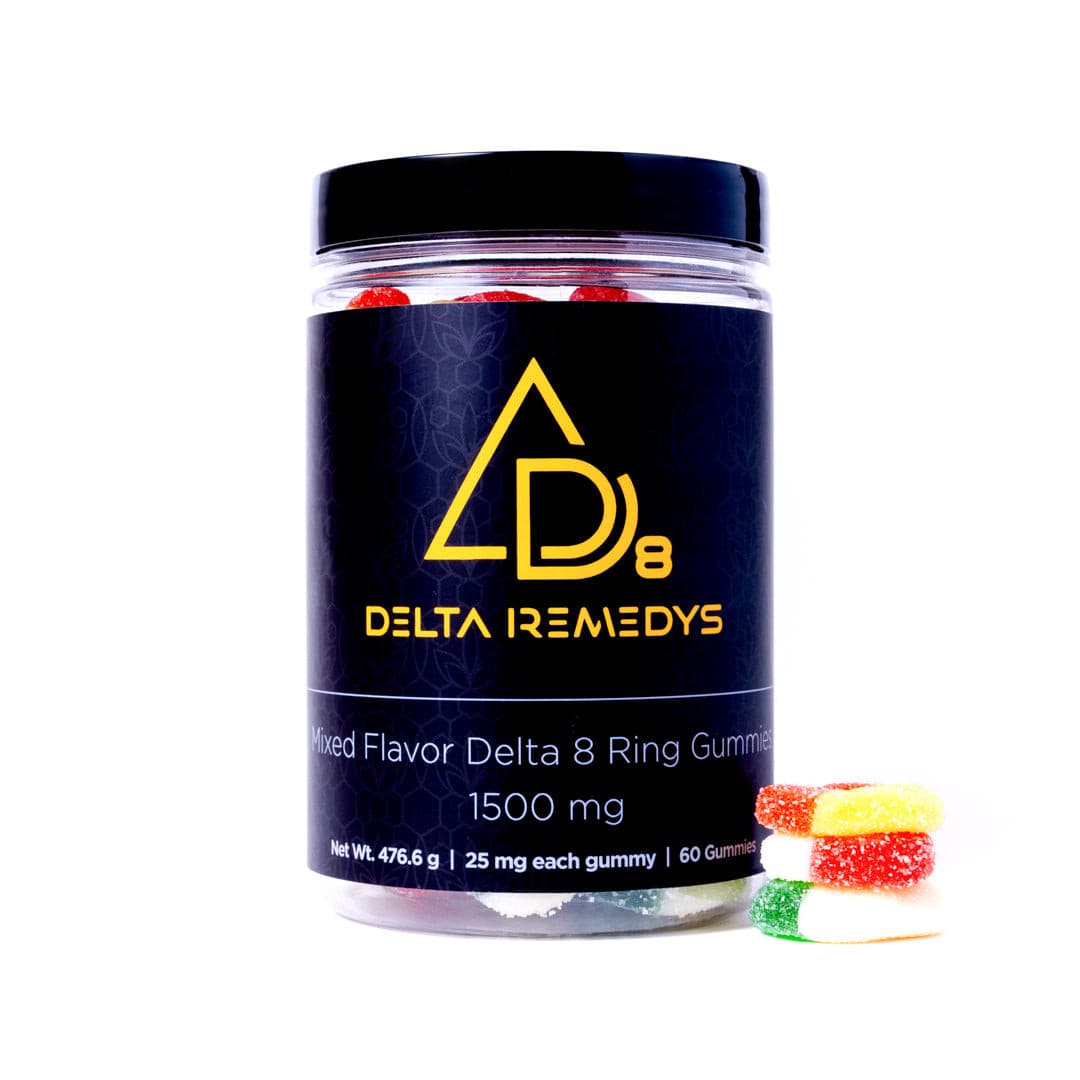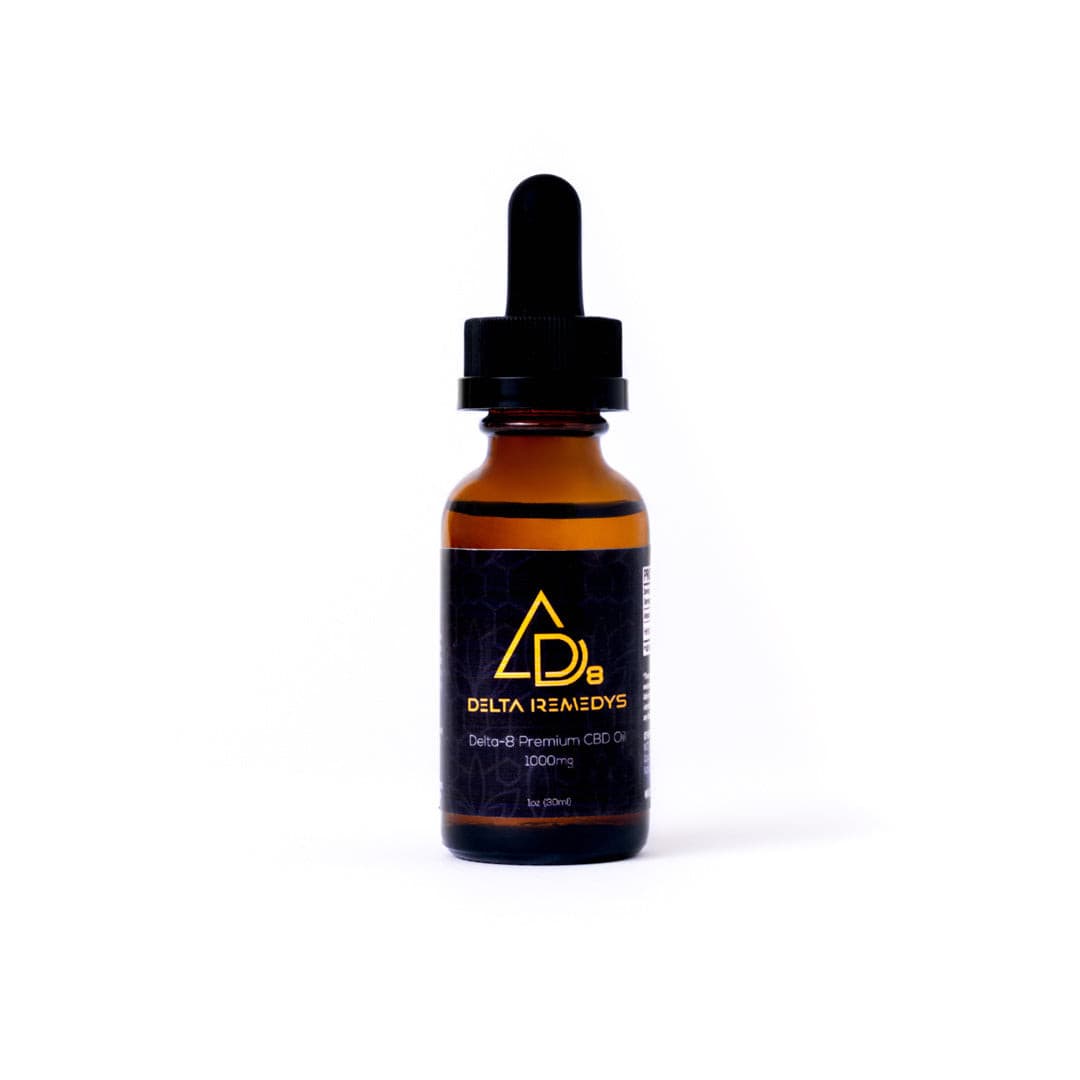You might have observed that several online CBD stores and dispensaries have started offering THCP-infused edibles and vape pens. THCP, an analog of THC, is a naturally occurring cannabinoid in certain cannabis strains. Scientists assert that its psychoactive effects are 33 times stronger than those of THC (Delta-9). Plus, it’s around 60 times more potent than Delta-8 THC!
Researchers are currently looking at the possible advantages of THCP. They believe that the results will help make cannabis more effective for human health. Additional research is important to learn about its positive effects and possible medical applications.
With all this in mind, we have compiled some important information about THCP, the most potent cannabinoid in the THC class. We will also learn how it compares to THC and how the two differ in terms of potency.
Let’s dive in!
What’s THCP?
Cannabis contains a psychoactive chemical known as THCP. Delta-9-tetrahydrocannabiphorol, or THCP, was found in 2019. It is structurally similar to THC but has a 33-fold higher potency.
Similar to other cannabinoids, THCP has a strong affinity for the CB1 receptor located in the body. Thanks to its lengthy carbon chain, it can create a stronger bond with it. THCP is believed to have effects comparable to other cannabinoids.
Different Types of THCPs
THCP products are categorized according to various strains. These varieties include hybrids of indica and sativa. Naturally, the THCP concentration is not specified by the strain. Instead, it serves as a measure of the entire effects that the product has.
Have a look below:
- The CBD content in indica strains is high. They are useful for relieving tension. Pop one of these pills when you need to unwind or get shut-eye.
- In contrast, sativa strains are unique. Their levels of psychotropic compounds, including THC, THCP, and others, are higher. Their dual purpose is to energize you while stimulating your thoughts.
- Hybrids are defined as the cross between Indica and Sativa and have the best qualities of both. Cannabinoid concentration and other variables can affect how they work.
=== split content ===
How is THCP Different from THC?
Except for the length of their alkyl side chains, the chemical structures of THC and THCP are almost identical. The carbon chain of THCP contains seven carbon atoms, whereas THC contains just five.
In addition to being a fascinating bit of information, this structural variation greatly increases THCP’s biological activity. With 30 times greater bonding activity at CB1 receptors, THCP has the potential to be 30 times stronger than THC. This is due to its longer side-chain.
A Comparison between THCP and THC – Quick Overview
It may appear like THCP and THC are pretty similar cannabis compounds, except for one letter. However, to better understand these exciting psychoactive cannabinoids, we will compare and contrast the two molecular structures in great detail, revealing their similarities and distinctions.
How Is THCP Distinct from THC?
The molecular structures are the main differentiator between THCP and THC. Cannabinoids’ psychoactive effects are due to their binding to specific brain receptors called CB1 receptors; THCP may have an advantage in this regard due to its longer side chain.
How THCP and THC Are Similar?
The psychoactive cannabinoids tetrahydrocannabinol (THCP) and delta-9-tetrahydrocannabinol (THC) connect with the endocannabinoid system, which is the brain’s signaling network. Emotion, memory, hunger, and pain perception are just a few of the many activities and functions that this system helps to regulate. The chemical composition of the two cannabis compounds determines how strongly they influence these processes, but anyone can have an impact.
What makes THCP more potent than THC?
The chemical structure of THCP was determined by the Italian study in 2019. Most of our readers don’t have a background in chemistry, but it would be useful to familiarize ourselves with the building blocks of THCP.
Each cannabinoid molecule contains an alkyl group on its side chain. The alkyl side chains indicate cannabinoid interactions with the ECS.
An alkyl side chain containing at least three carbon atoms is required for a cannabinoid to exert any impact on cannabinoid receptor 1 (CB1). The fact that it contains five carbon atoms is the main reason why consuming THC makes you feel euphoric.
However, there are seven in THCP.
Similar to THC, THCP is a CB1 agonist; that is, it produces an intoxicating effect upon sufficient receptor stimulation. When tested on human CB1 receptors, the naturally sourced THCP developed by Italian researchers showed a thirty-fold improvement in binding efficiency.
We can also infer that THCP is 30% more effective than THC since it has a stronger affinity for CB1 receptors in the brain.
A study published in the Journal of Natural Products in 2021 states that according to the preliminary findings, the predominance level of Δ9-THCP in the inflorescence of C. Sativa may be higher than previously estimated.
It appears that THCP has the potential to be 30% stronger than THC (Delta-9). Well, we don’t have enough data to draw firm conclusions, but even 30% is shocking.
Would You Consider THC-P a Safe Product Abid its Potency?
As soon as you hear about THCP, you might wonder, “Is THCP safe?”
Though THCP is more powerful than other cannabinoids, it is still important to use THCP correctly!
Keep in mind that although Delta-9 THC binds to cannabinoid receptors more strongly than THCP, the anticipated effects of THC-P will be higher. Similar to THC, THCP can have unpleasant side effects if taken in excess.
So, before you add THCP to your daily routine, be sure you know how much and how often to take it. The responsible manufacturers and sellers will ensure that their buyers get the right dosage and other important information before their purchase.
Bear in mind that THC-P was only recently found, and studies on it are still in their early stages. Therefore, we have yet to learn a lot about its effects, particularly at large dosages. First, take it easy and slow, and watch how your body and mind respond. Always observe your body’s reaction to a lower amount before increasing it.
What is Safe THCP Dose?
It is vital to understand the frequency and dosage of THCP. You could find that you need less THCP to get the same effect as you would with other THC products. This is because THCP’s effects are as powerful as those of cannabinoids like THCO.
We recommend beginning with a low dose to gauge your body’s reaction. Gradually adjusting the dosage over time allows you to tailor it to your level of comfort and desired effects. Just because something works for one individual doesn’t mean it will for another when it comes to hemp-derived products.
Many users have also noticed that, depending on the method of ingestion, the effects of THCP can persist longer than those of other forms of THC, such as THCP gummies, compared to THCP vape.
Regarding the frequency, that is subjective to date. Some people may find that using THCP regularly works best for them, while others may choose to use it less often. Discovering a schedule that suits you and helps you achieve your objectives is crucial. Keep in mind that experimenting with THCP should be a personal procedure. Always put your health first, pay attention to your body, and make adjustments as necessary.
THCP vs THC-O
What sets THC-O unique from THCP? Let’s take a deeper look at the matter!
We all know that the potent effects and characteristics of THC-O and THCP are distinct from one another. Because of its longer molecular chain, THCP is more powerful and quickly impacts the body.
Compared to THC-O, which only has five structural connections, this cannabinoid has seven, making it interact with the body’s cannabinoid receptors more powerfully with highly potent effects. The fact that THCP’s chemical structure is almost 2000% longer than THC-O’s is a major factor in its enormous potency.
In contrast to THCP, THC-O has a less intense or potent effect and takes longer to start working and produce therapeutic benefits. This is because it is a prodrug that must undergo a more extensive breakdown and activation process, unlike other cannabis compounds.
While both THC-O and THCP belong to the “Tetrahydrocannabinol” family, they are distinct in important ways. In contrast to THCP, which occurs naturally in plants, THC-O is a man-made or synthetic cannabinoid. Regardless of their origin, they affect the endogenous cannabinoid system in humans as potent psychoactive compounds.
Being around ten times stronger, THCP outperforms THC-O in terms of potency. Conversely, it is well-known that THC-O is two to three times stronger cannabis compound than standard THC.
The hallucinogenic and psychedelic effects of THC-O can be experienced at high doses, while the rapid onset and potent effects of THCP do not require any extra physiological processes.
They are both far more powerful than THC, so they aren’t recommended for those who aren’t familiar with the potent cannabis industry or who lack expertise with synthetic cannabinoids.
Intense and overwhelming bliss from all of these psychoactive compounds taken at once is possible. Potential adverse effects include nervousness, panic attacks, and other similar symptoms due to intact molecular structures.
THC-P vs THC
Cannabinoids molecular structures present in cannabis or marijuana plants include tetrahydrocannabinol (THC) and tetrahydrocannabiphorol (THC-P). Although the intoxicating effects of these synthetic cannabinoids are well-known, recent studies have shown that THC-P maybe even more influential among the other cannabis compounds.
Although the endocannabinoid system is activated by both THC and THC-P’s therapeutic benefits, the latter may bind to cannabinoid receptors with a stronger affinity. The legal status of THC-P on the federal level differs from one jurisdiction to another, and studies into its possible potent effects are ongoing, unlike other synthetic cannabinoids.
Knowing the differences between these two cannabis compounds is crucial because they affect how psychoactive compounds work for you. Always research the possible potent effects and local laws (or at the federal level) before deciding to use any product cannabis compounds, strain, or edible that contains psychoactive compounds like THC or THC-P.
Delta-8 vs. THC-P
Both THC-P and Delta-8 are psychoactive cannabinoids, so it’s vital to keep that in mind while comparing the two. Not only is THC-P a new and potent cannabinoid in the cannabis industry, but Delta-8 is also making waves due to its exciting characteristics and possible therapeutic benefits.
While Delta-8’s molecular structures are recognized for generating lower euphoric effects compared to standard THC, research indicates that THC-P could be more potent. Both cannabinoids’ legal standing on the federal level is up for debate, so it’s essential to keep up with local rules.
You may make a more educated decision while investigating top products from the cannabis industry if you know how these cannabinoids differ from one another based on their molecular structures, effects, and benefits.
THC-P vs THCB
Two powerful cannabinoids of the cannabis industry, THC-P, and THCB, have aroused the curiosity of scientists. Research into tetrahydrocannabiphorol from marijuana plants is underway because of its possible greater potency than that of the famous psychoactive cannabinoid THC.
Contrarily, tetrahydrocannabivarin, or THCB for short, interacts with the endocannabinoid system in the body and has demonstrated potential in pain and inflammation management. The distinct impacts and possible advantages of these cannabinoids from marijuana plants open up new research directions.
If you’re a cannabis consumer looking to branch out and try new strains and products within the cannabis industry, learning about these unique psychoactive cannabinoids will help you make more informed decisions about which strains to try and how to use them for therapeutic or recreational purposes.
As scientists learn more about these chemicals and their potent effects on humans, the way we examine them is constantly changing.
THCP FAQs
Is THCP a Synthetic Substance?
THCP is a natural component of cannabis. However, the concentrations are quite minute. Therefore, extracting THCP for product usage is not viable for firms. The total expense of the strategy would be too high for their budget. That’s why THCP is made from CBD distillate by several companies.
Does THC-P Have More Potency Than THC-O?
In comparison to THC-O, THC-P is much stronger. Despite sharing a structural similarity with ordinary THC, THC-O is far more potent. The same metabolites are also produced by it. An artificial cannabinoid. Comparable to THCO is THCP as well. Its affinity for CB1 receptors is higher due to its longer alkyl chain. Therefore, THCP has stronger effects than THCO. Furthermore, the cannabis plant does not naturally contain THCO.
Would Consuming THCP Daily Put You at Risk?
THCAP has no intoxicating effects when taken in the right dose. Raw THCP is typically safe to use daily. However, there needs to be more research using THCP. The potential consequences of THCP use in the future are unknown. That is why it is important to exercise caution when using this cannabinoid. You should consult a medical professional on your symptoms to determine if THCP is appropriate. In this approach, your physician can determine the most secure method of administering THCO to you.
What Does THCP’s Half-Life Look Like in a Human Body?
To find out how long THCP stays in the body, more research is required. On the other hand, THC has a half-life of approximately twenty hours, according to the study. Although most people’s bodies eliminate all traces of THC within two weeks, individuals have claimed to feel its effects for as long as thirty days following a single hit. Research also shows that THC can be found in hair samples taken three months after marijuana usage if the drug is taken daily or almost daily. Until more research can provide more information, the same might be stated about THCP.
Is THCP Known to Interact with Any Other Medications?
The medicines with which THCP interacts require further study. About 391 medications have been found to interact with cannabis as of 2022. Of these, 26 were classified as major interactions, 365 as moderate, and 0 as mild. Several medications, including codeine, hydrocodone, morphine, and fentanyl, are known to interact with cannabis. As a general rule, you shouldn’t combine pharmaceuticals, so if you’re on medicine and also use marijuana, it’s best to consult your doctor.
Who are THCP’s primary rivals?
One of THCP’s key rivals is Delta-9 THC. In contrast to THCP, which is permitted in nearly every state, Delta-9 THC is legal in relatively few. Regarding potency, THCO is right behind but completely synthetic in nature.
Is THCP Stronger Than THC?
Recent studies have shown that THCP may have far more potency than THC. The primary reason for this is its enhanced binding affinity to cannabinoid receptors in the human brain. However, additional research is required to understand this high potency’s consequences fully.
Could THCP Be Confirmed by a Drug Test?
The majority of routine drug screens look for traces of THC in the human body. It is uncertain whether these tests will identify it because it is an entirely novel cannabis compound. However because they share some structural features, it’s not out of the question that THCP may provide a false positive for THC in a drug test.

